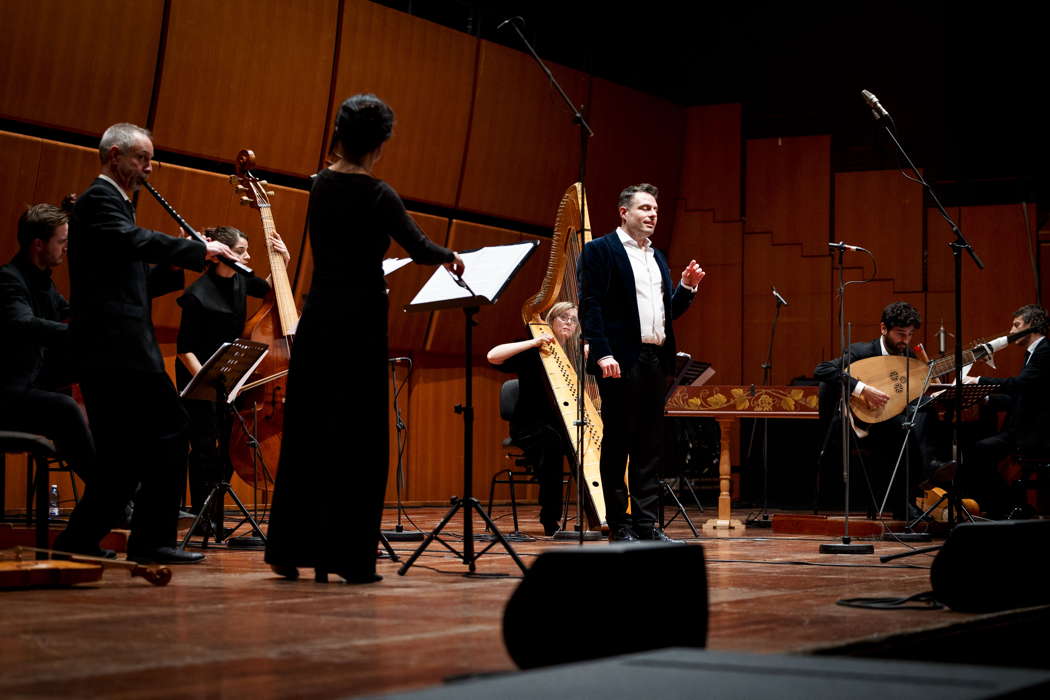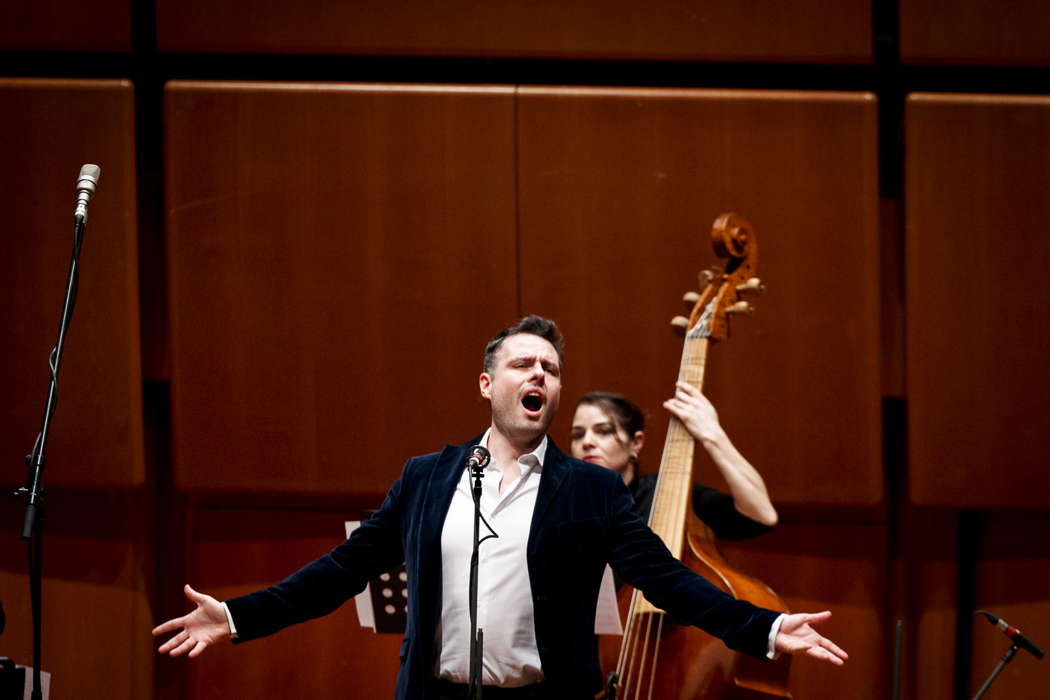 VIDEO PODCAST: John Dante Prevedini leads a discussion about Classical Music and Artificial Intelligence, including contributions from George Coulouris, Michael Stephen Brown, April Fredrick, Adrian Rumson and David Rain.
VIDEO PODCAST: John Dante Prevedini leads a discussion about Classical Music and Artificial Intelligence, including contributions from George Coulouris, Michael Stephen Brown, April Fredrick, Adrian Rumson and David Rain.
 DISCUSSION: What is a work? John Dante Prevedini leads a discussion about The performing artist as co-creator, including contributions from Halida Dinova, Yekaterina Lebedeva, Béla Hartmann, David Arditti and Stephen Francis Vasta.
DISCUSSION: What is a work? John Dante Prevedini leads a discussion about The performing artist as co-creator, including contributions from Halida Dinova, Yekaterina Lebedeva, Béla Hartmann, David Arditti and Stephen Francis Vasta.
 UPDATES: There's a new feature every day at Classical Music Daily. Read about the various ways we can keep in touch with you about what's happening here.
UPDATES: There's a new feature every day at Classical Music Daily. Read about the various ways we can keep in touch with you about what's happening here.
The Magical Countertenor Voice
GIUSEPPE PENNISI listens to Raffaele Pé
The countertenor is a singer with a magical voice: he is a man often able to sing baritone roles, given the agility of his vocalizations, whose voice has an extension that reaches alto and soprano registers. The countertenors thrilled the public in the Baroque age and, for this reason, there was the terrible practice of young people's castration before they changed their voice. They disappeared completely from the repertoires and scenes during romanticism and verismo. Only in the Sixties of the last century, the Baroque opera began to reappear. For several years, roles conceived and written for countertenors were lowered by a couple of octaves and entrusted to baritones. I remember, for example, in 1973 an excellent production of Monteverdi's L'Incoronazione di Poppea (originally made at Long Beach Opera in Southern California), the role of Nero (written for a countertenor) was sung by the very young Alan Titus. He played the erotic scenes covered only with a cache sex.
Countertenors have never completely disappeared in Britain, mainly because of Church music. In Italy, they have recently reappeared in parallel with the revival of Baroque music. The thirty-six-year-old Raffaele Pé is, without a doubt, the best known of all, even internationally. We reviewed him in this magazine in his interpretations of Melani's L'empio punito and Handel's Rinaldo. In the coming months he joins operatic engagements - Handel's Belshazzar in Goettingen, Vivaldi's Farnace in Piacenza, Handel's Tamerlano in London and Vivaldi's Giustino in Stockholm - with an extensive concert tour in which he is accompanied by La lira di Orfeo, an international group based in Lodi (where Pé was born and lives), which plays with period instruments. The members of La lira d'Orfeo are Anais Chen, violin; Doron Sherwin, light horn (also called croissant); André Lislevand, viola da gamba; Guisella Massa, violone; Chiara Granata, harp; Simone Vallerotonda, theorbo and Spanish guitar; and Davide Pozzi, harpsichord. The tour includes numerous programs: the one given in Rome on 23 February 2022 as a part of the chamber music season of the Accademia Nazionale di Santa Cecilia was centered on Monteverdi - the title is #solomonteverdi - and will be repeated only in London on 20 June and in Cremona on 26 June 2022.
The Sala Sinopoli of the Auditorium of the Parco della Musica was quite full, taking into account the situation of these months in which the public, fearing COVID, does not crowd the concert halls. This is a clear sign that the Baroque and Raffaele Pé in particular attract live listeners (as well as selling CDs well).
The vocal pieces (accompanied by the ensemble) were interspersed with two instrumental pieces by Dario Castello and one by Giovanni Battista Riccio.

Raffaele Pé and La lira di Orfeo performing in Rome on 23 February 2022. Photo © 2022 Musacchio, Ianniello & Pasqualini
The concert began with Si dolce è il tormento, a 'scherzo' taken from the Ariose Vaghezze in which Pé gave a real test of agility. Eppur ritorno, the return home of Ottone who, in L'incoronazione di Poppea, is beaten by the servants of Nero intent on copulating with Ottone's own wife, was terse, painful and dramatic. The first part ends with two pieces of sacred music. (Pé's voice was noticed when, very young, he sang at the Cathedral in Lodi.)

Raffaele Pé performing in Rome on 23 February 2022. Photo © 2022 Musacchio, Ianniello & Pasqualini
The second part began with three sweet passages from L'Orfeo: Rosa del Ciel, Dal mio Permesso amato, Vi ricorda o boschi ombrosi. In these passages, the Arcadian elements are admirably fused with the joy of Orpheus of having found 'his' Eurydice. The program continued with the lullaby that the nurse sings at Poppea to conclude with Voglia di vita uscire, a rare air of suicide found in the Filippini Archive in Naples.
There were applause and ovations. Pé and La lira di Orfeo responded with two encores, one sacred (of praise to the Lord) and one profane.
Copyright © 25 February 2022
Giuseppe Pennisi,
Rome, Italy



